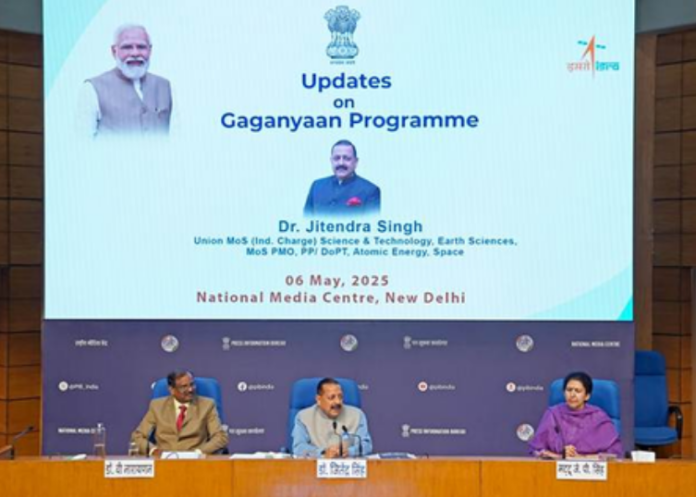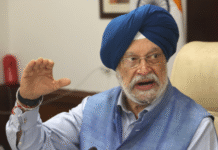New Delhi— India’s landmark human space mission ‘Gaganyaan’ has entered its final phase, with the first crewed spaceflight now scheduled for launch in the first quarter of 2027, Union Minister Dr. Jitendra Singh announced on Tuesday.
Speaking at a press event, Dr. Singh said the successful completion of the TV-D1 mission and India’s first uncrewed Test Vehicle Abort Mission earlier this year had laid the groundwork for upcoming milestones. The second test vehicle mission (TV-D2) is scheduled for later this year, followed by uncrewed orbital test flights. These missions will pave the way for India’s inaugural human spaceflight, to be launched aboard an Indian rocket from Indian soil.
Calling Gaganyaan a “historic mission,” Dr. Singh said it reflects India’s growing stature as a global space power. “It is not just a scientific breakthrough—it is a testament to our indigenous capabilities, prudent investment, and visionary leadership,” he said.
He also reiterated Prime Minister Narendra Modi’s long-term goals for India’s space program, which include establishing a ‘Bharatiya Antariksha Station’ by 2035 and sending the first Indian astronaut to the Moon by 2040.
The mission is progressing on multiple fronts. The human-rated LVM3 launch vehicle, along with the Crew Escape System and the Crew Module-Service Module combination, are currently in the final stages of integration and testing. The uncrewed Gaganyaan orbital mission remains on track for launch later this year, with recovery drills already conducted with the Indian Navy and more sea-based simulations planned.
Astronaut training is also well underway. Four Indian Air Force pilots selected as astronaut-designates have completed foundational training in Russia and are now undergoing mission-specific preparations in India. Their health, psychological readiness, and operational performance are being closely monitored at India’s astronaut training facility.
Dr. Singh emphasized that the program’s cost remains modest in comparison to similar missions undertaken by other countries. “The returns—in terms of technological innovation, industrial development, and global prestige—will far outweigh the expenditure,” he said.
ISRO Chairman Dr. V. Narayanan echoed those sentiments, noting that Gaganyaan is not only a national milestone but a catalyst for India’s emergence as a self-reliant space power. He added that the mission is already inspiring a new generation of scientists, engineers, and entrepreneurs.
With the crewed mission expected to launch by early 2027, India is on track to join the elite group of nations with independent human spaceflight capability. (Source: IANS)








